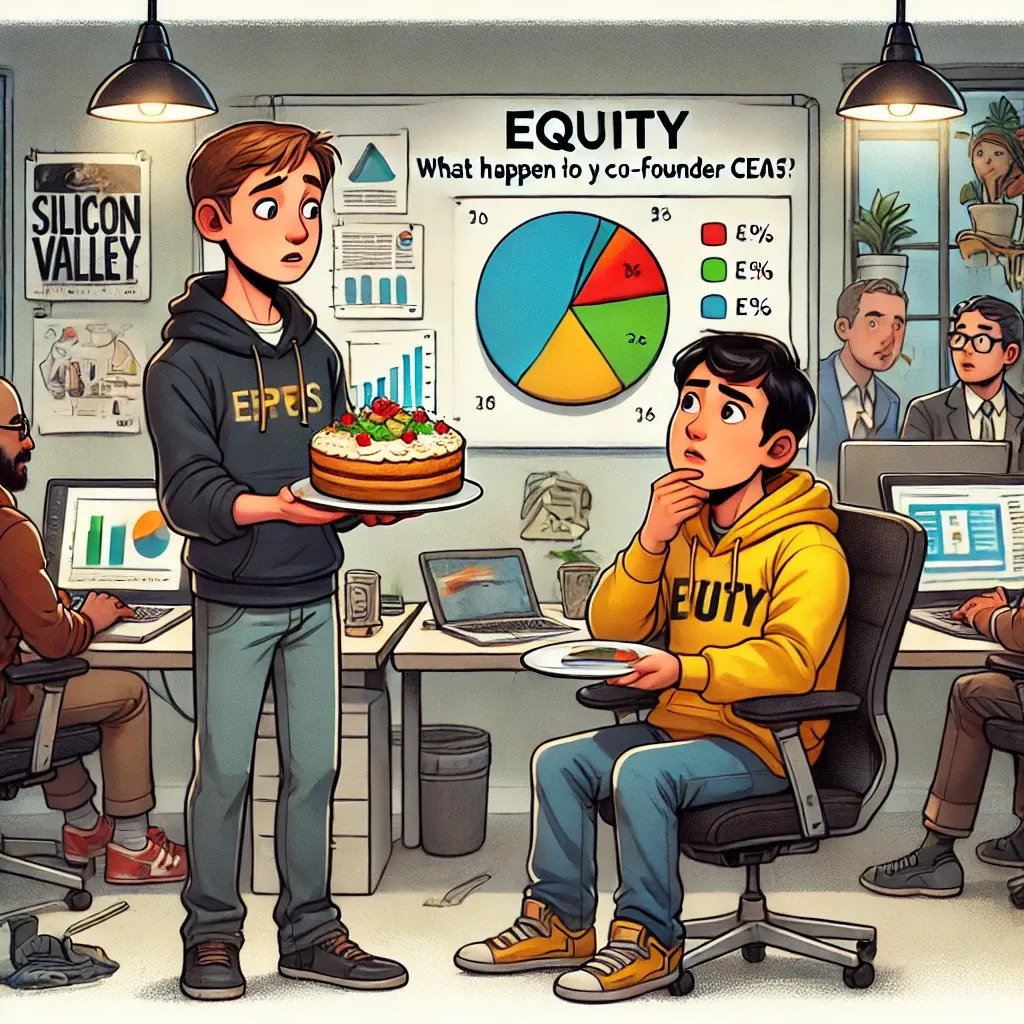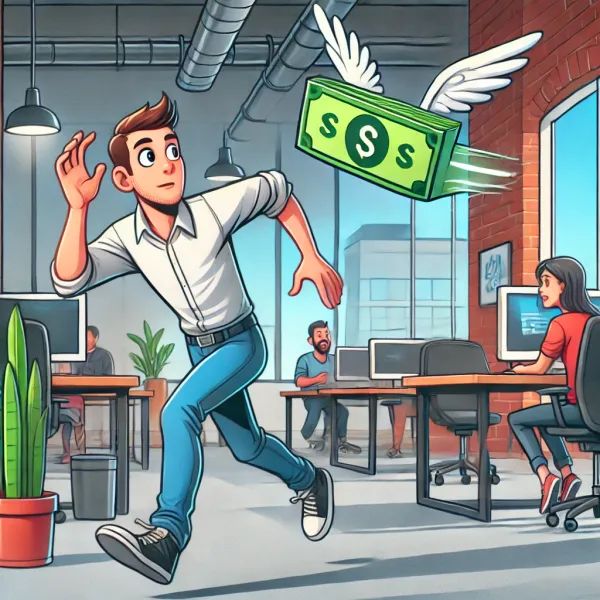What happens to equity when the cofounder CEO leaves your startup?
Any unvested equity goes poof. The board will try to convince the leaving CEO to give back a chunk of their equity. Most will.

Pick up a copy of Noam Wasserman's The Founder's Dilemma if you haven't already. One eye popping statistic from the book is that 50% of founding CEOs will be out of their job within three years, 60% by four years, and 75% before an IPO.
Startup cofounder CEOs leaving is incredibly common, more so than most entrepreneurs think.
While there are plenty of articles out there for departing CEOs, there's little for the cofounder left behind. This is for you. I'll narrowly focus on equity in this post. I'll address how you might feel and what might happen if you become the next cofounder CEO of your startup in a separate post.
Does a departing cofounder CEO keep their equity?
Yes, your cofounder will keep some, but not all, of their equity.
The crucial factor here is whether their equity is vested or not.
Unvested equity
Poof! This unequivocally goes back to the equity pool if that's where it came from. If it was just the original equity you guys split, rather than a grant from the pool, it goes back to the treasury as authorized but unissued shares.
Weirdly, the dilution is different between these two cases. If the shares return to the equity pool, your dilution remains unchanged. However, if the shares go back to the treasury, they are removed from the issued share count, and you will be less diluted (equity pool shares by contrast have been issued, by a board consent to the equity pool).
You don't get to choose - unvested shared just go back to where they came from. However, it is generally to your advantage if they end up in the Treasury. At the next round of funding, it's nice to think that you'll model out how much you need in the equity pool and that's what will be added, but in fact many funds have a rule of thumb "top up the pool by 10% or 15%". You don't have to make that a deal point like you might if you also have your cofounders old shares sitting in the pool - that sets you up for more dilution.
Vested equity
If it's vested, it's theirs, assuming your company's paperwork is all in line, including the grant docs. The board and shareholders generally can't take it from them.
But here's what actually happens
Investors don't want your cofounder leaving with a lot of equity. There are several reasons why:
- It's demotivating for you or for the new outside CEO. You have years of work ahead of you and your cofounder will benefit from that. This is what your investors may say is the biggest issue for them, and it is real, but it's not their main concern.
- They may need to hire a new CEO and give them a substantial stock grant. Or top you up if you become CEO. This dilutes their ownership (either directly or if/when they need to add more to the equity pool for other hiring).
- Later round investors don't like "dead equity" on the cap table. If you're bumping along, you may have a hard time attracting investors because of the dead equity. This is bad for you, but not necessarily bad for VC investors in the sense that bumping along = a loss anyway.
- Later round investors don't like "dead equity" on the cap table, redux. If you start hitting it out of the park, you will get lots of offers, and they may be cram downs. That is, we'll invest $xxx, but only if your current investors agree that their ownership is less than it should be numerically. You'll also get crammed down, but assuming the new investors want you, you'll also get a top-up grant. Bad for the current investors, fine for you.
A cram down is the scenario they want to avoid, so they will roll out all the pressure they can on your departing cofounder. They might ask nicely, they might make logical arguments about future rounds, they may threaten reputationally, they may offer introductions for your cofounder's next startup if they would just behave....
And it usually works.
As a non CEO cofounder, what do I need to think about if my co-founder is leaving our startup?
Unless your cofounder is going to be doing the perp walk for fraud or something, remember the startup world is the biggest smallest industry. Act with dignity and treat them kindly the entire time. It's not the time to have sharp elbows or a sharp tongue.
Here's a list of things I learned that I'd pass on, in no particular order:
- Leaving their startup is an undignified process for the CEO, regardless of the reason or whose decision it was. Every bit of grace you can give your cofounder is worth it later.
- You can't advocate too strongly for your cofounder, even if you feel the investors are being unfair. There may be suspicion that you caused them to leave, contributed to their leaving, or outright plotted with them for them to leave. Pushing for them too hard fans these suspicions.
- As soon as they leave, you are going to have to work to get the investors to back you, regardless of whether you become the CEO or not. Relationships have shifted, they're afraid the company is much riskier than it was, and, frankly, they invested in your cofounder as CEO, not in you.
- You will probably need to call your cofounder occasionally for help after they leave - a password they forgot to give you, a contract you can't find. Consider negotiating an hourly as-needed consulting relationship so it feels fair to both of you.
- Your cofounder relationship can survive them leaving your startup. It's a friendship born in fire, and once the dust settles, you may find your former cofounder is now one of your biggest cheerleaders. Mine is.
Irony of ironies, though. You know which dead weight doesn't matter in the slightest? Prior round investors who don't reinvest...
I'm not your lawyer, your therapist, your advisor, or your accountant. We're just internet friends, and these are just my experiences and personal opinions. Consult professionals for advice before you make any sudden moves in your startup.
You will see the occasional affiliate link. I do earn a commission if you buy the products I recommend. I appreciate you buying through the links if you're going to buy. This is a labor of love for my fellow cofounders, and I do love receiving a few coins to pay hosting costs if you like my work.




